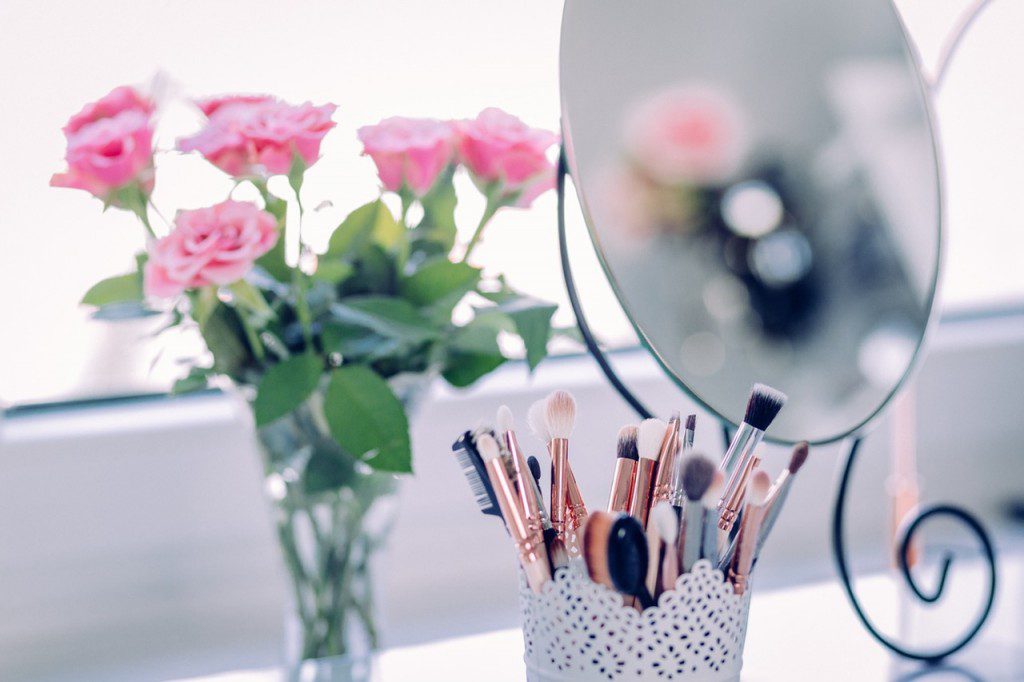
Women are amazing, elegant and beautiful. We have so many layers – emotional, hormonal, mental. No wonder men call us so complicated! However, when it comes to hormone imbalance, complicated can make things a bit tricky. Our complexity is our greatest asset and at the same time our biggest downfall. As a woman, we go through many stages; menstruation, contraception, childbearing and menopause. Pair all of this with lifestyle factors like our love for multitasking, juggling work/family and top it all off with stress, lack of sleep, dieting, make up…..and well it all adds up to a recipe for hormonal disaster.
Sometimes finding balance is not that easy but this article aims to touch on some common signs to watch out for when it comes to female hormone imbalance as well as some simple ideas to incorporate in your daily routine to help support your body to reset naturally and have you feeling like a goddess.
Common Signs & Symptoms of Hormone Imbalance:
- Unexplained Weight Gain/Loss
- Hair loss/thinning
- Facial and/or body acne
- Irregular period/amenorrhea
- Ongoing fatigue
- Insomnia
- Low Libido
- Depression/Anxiety/mood swings
- Foggy Brain
- Bloating/Oedema
- Digestive Issues
- Vaginal Dryness
- Breast Changes/swelling/tenderness
- Night Sweats/Hot Flashes
- Unexplained/persistent backaches/muscle pain
Some common disorders associated with (and/or exacerbated by) hormonal imbalances include hypothyroidism, PCOS, diabetes and oestrogen dominance.
This list is not exhaustive and is not there to panic you. Rather, I want to highlight that hormones do very much play a real role in those moments when we feel angry, frustrated and emotional, sometimes for no apparent reason. These imbalances are usually caused by a combination of factors, most commonly diet, lack of exercise, genetics, stress and toxins.
Luckily, addressing these areas can also help to re-balance and reset your hormones naturally. Before we dive in, just note that balancing your hormones is a process, and takes time so patience is key. We’re looking at long-term lifestyle changes and consistency, not an overnight fix. And while that can be frustrating, sticking with it is so worth it. Just think how it would be like to feel vital, happy, alert, brilliant, and thriving.
Five key areas to help rebalance hormones

1. Stress:
While nutrition is key to good health, you simply cannot ignore stress. To sum up very briefly, your nervous system has two sides: sympathetic and parasympathetic. The sympathetic system is your ‘fight or flight response’ and prepares you for battle and the parasympathetic system is the other side; the relaxed state that helps you rest. The key problem is the chronic overuse of the sympathetic state namely because we no longer worry about a tiger attacking us or going to battle with a neighbouring tribe (i.e short-term stress). No, instead we have bills, debts, job pressure, children, keeping up with the Jones’s etc…..all these things we stress and mull over daily.
And guess what most people do when they feel a bit down or especially women when they want to lose weight? They are already running on overload and in an effort to do better, they start increasing the intensity and/or volume. So with exercise, we train harder, with the daily life we juggle even more. All of this just adds, even more, stress and strain on the sympathetic system.
What can you do?
If you don’t feel your best right now, start by boosting the parasympathetic side first – deep breathing (Headspace App is great), walking (10k steps per day minimum), stretching/yoga are all key to stimulating the relaxation your body needs and craves. Remember, that anxiety and feeling low can also be linked to the food we are eating. (see the last point)
Try just 10 minutes and schedule 5 minutes in the morning and evening to journal or do some gentle breathing exercises. Increased blood flow around the body helps transport nutrients and oxygen which are both needed for a healthy metabolism so why not look to start any of the following list of twenty ideas.
2. Healthy Fats (Omega 3:6)
Your body needs fats to both transport certain vitamins and also make key hormones like oestrogen, progesterone, testosterone. To do this, your body needs certain types of fat, namely saturated fat and cholesterol. And what’s more, these fats are key not only to hormone production but also to managing inflammation. Go-figure.
Now, not all fat is created equal. Thanks to industrial production methods and focus on the bottom line, there has been a lot of focus on promoting vegetable oils. Not only are these fats more likely to be damaged (by light, extreme heat of processing and air) due to the heavy processing they require during extraction, they also have completely unbalanced our omega 3:6 intake. In short, omega 3 is the anti-inflammatory essential fatty acid we need to take in as part of a balanced diet from sources like oily fish while omega 6 is the pro-inflammatory essential fatty acid we also get in our food from sources like nuts. Being pro-inflammatory isn’t a bad thing, it’s the balance that is key. Richard goes into all the details in the videos below.
What can you do?
Don’t fear fat. Include fat daily in your diet from whole food sources like nuts, seeds, oily fish, avocados and even good quality dairy. Ditch the low fat products for good.
3. Toxins
As women, we can be exposed to a lot of chemicals daily – make-up, detergents, washing up liquid, creams, shampoo/conditioner, beauty spa products, hair dyes, fake tan, candles, perfumes and more.
Have you ever looked on the back at the label of these products and tried to add up how many ingredients there are? It’s pretty overwhelming how much your body be dealing with when you consider that it takes an average 20-30 seconds for something you put on your body to penetrate your skin.
While it may be very difficult to completely eliminate all of these items from your daily routine, you have to realise that all of these ‘foreign’ compounds have to be processed and this job pretty mostly falls on the liver. Your body is very good at naturally detoxifying itself and deals with something like 500 foreign compounds/bodies daily, but just note that constantly adding to this ‘pile’ is never going to do you any favours.
What can you do?
Logically think through what can you reduce, eliminate or replace?
Try to look at replacing some of your beauty products with natural brands made with ingredients like essential oils, coconut oil, shea butter and castor oil. A good resource is the Environmental Working Group which has evaluated over 72,000 products and ranked them in an easy-to-understand guide to make sure you have a resource to keep your family safe. Check out EWG’s site today for recommendations.

4. Sleep
The sad reality is that humans now sleep less than ever before at an average of just six hours. Not only is it because of things like working overtime and being exposed to computer screens/blue light non-stop, but we are also desperately trying to ‘keep up with the Jones’s’ and fill up our day to the brim. And while most of us skip sleep in a desperate effort to get more done and be more productive, it has the reverse effect long term. Your ability to think clearly is down-regulated as is your memory, information processing, decision making and most importantly hormone balancing.
What can you do?
- Set the scene: Your bedroom is probably the most important room in the house where you need to make an effort to create an environment more welcoming to a good night’s rest. Think fresh sheets, blackout blinds and no technology
- No technology before bed: work to eliminate all technology from your night routine at least an hour before bed. You want to get away from all that blue light.
- A night routine: we are creatures of habit so one of the best things you can do is set up a night-time routine to help you wind down for bed. Dim the lights, read a few pages of your favourite book, journal, write up your to-do list and finally aim to be in bed at the same time every night…..Easier said than done I know but consistency is important long term.
- Struggle to relax? Try an Epsom salt foot soak or bath right before hopping under the sheets. Magnesium helps to relax the muscles and in this way can be great to ‘wind down’ for bed. Add some scented oils and a cup of camomile tea for added zen.

5. Balancing the gut
It all starts in the gut. What you eat has an incredible impact on your health and yet is so often completely neglected or missed, especially when it comes to hormonal balance.
Significant imbalances in the gut can lead to a number of issues including raised cortisol (from either blood sugar imbalance or leaky gut), aggravate food intolerances, upset hormone processing (in the liver) and create nutrient deficiencies.
What can you do?
First and foremost, steer clear of the foods that can cause damage to your digestive system like processed foods, gluten, hydrogenated oils and added sugar. Instead, look to incorporate gut-loving foods like probiotic rich organic kefir, bone broth, vegetables, fermented vegetables and sprouted seeds. You can also look to balance your body with a good quality probiotic which helps to both balance and feed the good bacteria in the gut.
Finally, it might be worth taking a look at reducing both caffeine and alcohol intake as both can impede your natural detoxification pathways and alcohol has been linked to blood sugar imbalance, oestrogen dominance, fertility, bone health, anxiety and mood imbalances.
So there you have it – five areas you can explore to help you rebalance your body and hormones. Let us know if you’ve had success with any of the above.
If the above left you a little confused, we can help! Why not book an appointment at our Nutritional Therapy Clinic? You’ll see expert nutritional therapy in action – and no-doubt end up feeling better! Just drop us a line.
And finally, if you think you’d like to learn about this in more detail, see what our class of 2016 has to say about studying Nutritional Therapy at IINH.
And a final comment….
**Please note that for certain conditions, synthetic hormonal treatments (such as insulin or thyroid medication) will be necessary to treat a hormonal imbalance. While the natural treatments above can still help you overcome your illness and greatly reduce symptoms, these recommendations are not intended to replace medical advice. Please speak to your doctor**











